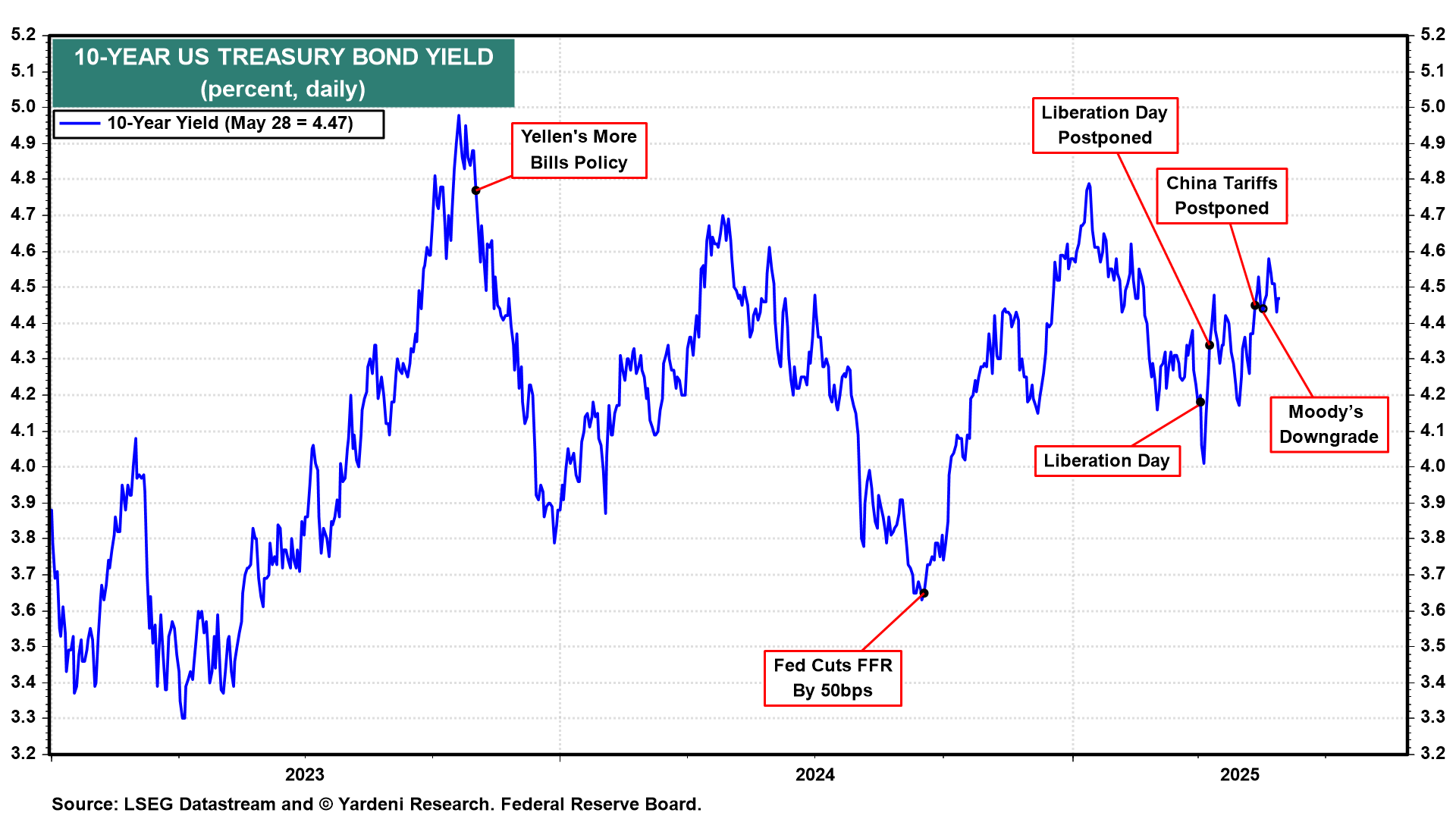In imposing his tariffs in early April, President Donald Trump called the trade deficit a national emergency that justified his doing so. Last evening, the Manhattan-based Court of International Trade said the US Constitution gives Congress exclusive authority to regulate commerce with other countries that is not overridden by the president’s emergency powers to safeguard the US economy.
"The court does not pass upon the wisdom or likely effectiveness of the President’s use of tariffs as leverage. That use is impermissible not because it is unwise or ineffective, but because [federal law] does not allow it," a three-judge panel said in the decision. The Trump administration, minutes later, filed a notice of appeal.
Stock futures surged on the court’s ruling as well as on Nvidia’s (NASDAQ: NVDA ) strong earnings report after the market closed. The 10-year US Treasury yield remained around 4.50% this evening. The Dollar Index (DXY) firmed, and the price of gold slipped.
Two days after Trump’s April 2 "Liberation Day," we anticipated the court ruling in our April 4 QuickTakes :
The federal laws governing tariffs give the President very broad authority over trade policy generally, and specifically over tariff rates. However, Trump’s tariffs are likely to be challenged in courts. In his executive order announcing the latest round of tariffs, Trump claims the power to do so under a wide range of federal laws, including the International Emergency Economic Powers Act and the Trade Act of 1974. The plaintiffs are likely to ask the courts to deny that the President was justified in declaring a national emergency.
We concluded "that the negative impact of Trump’s tariffs will be over by mid-year ... If so, then the current stock market selloff is a buying opportunity."
Five days after Liberation Day, we wrote in our April 7 Morning Briefing :
Trump’s Liberation Day last Wednesday triggered Annihilation Days on Thursday and Friday, with the Stock Market Vigilantes giving a costly thumbs-down to Trump’s Reign of Tariffs. Trump officials say they aim to make Main Street wealthy again even if that’s bad for Wall Street. The problem is that Main Street owns lots of equities traded on Wall Street, so the two streets prosper and suffer together.
Congress can’t do much to stop Trump given his veto power, but he might get the message that hurting Main Street’s stock portfolios can cause a recession and jeopardize the GOP majority in Congress. If so, he might postpone the reciprocal tariffs, giving trade negotiations time to work. Also, the courts might block Trump’s tariffs. An early end to Trump’s tariff nightmare would result in a V-shaped stock-market bottom. We’re counting on that; the alternative is just plain ugly.
Our April 8 QuickTakes was titled, "Is Something About To Blow Up In The Credit Markets?" We warned:
The Stock and Bond Vigilantes are signaling that the Trump administration may be playing with liquid nitro. Something may be about to blow up in the capital markets as a result of the stress created by the administration’s trade war.
Indeed, the 10-year US Treasury yield jumped from 4.01% on April 1 to 4.50% on April 11 (chart). That spooked Trump and his advisors, which is why they chose to postpone Liberation Day on April 9. The
S&P 500
’s correction, which started on February 19, ended on April 8, one day before Trump postponed Liberation Day by 90 days.

Our April 20 QuickTakes was titled, "Contrarian Indicators Showing Too Many Bears." We wrote:
We don’t recall this ever happening before. During the past three weeks, The Economist has featured three very bearish cover stories suggesting that the dollar might be on the verge of collapse and that so might the US stock and bond markets along with the global economy (chart). Contrarians of the world, unite!
Original Post
